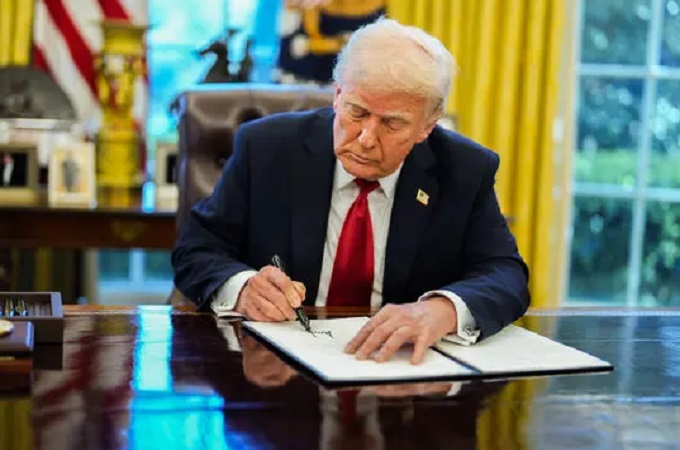European markets and US stock futures are trading lower. This anticipated decline is largely attributed to President Donald Trump's recent announcement of a 25% tariff on imported cars and light trucks, set to take effect on April 3.
The automotive sector, a significant component of both economies, is at the forefront of investor concerns.
In the US, futures for major indices such as the Dow Jones Industrial Average and the S&P 500 indicate a downward opening. Automotive giants like General Motors and Ford have already experienced notable share price declines, reflecting apprehensions about increased production costs and potential decreases in sales volumes.
Analysts warn that these tariffs could lead to higher vehicle prices for consumers, potentially adding between $5,000 to $15,000 to the cost of imported cars and $3,000 to $8,000 for domestically produced vehicles that rely on foreign parts.
This surge in prices is expected to contribute to elevated inflationary pressures throughout the year.
European markets are similarly impacted, with futures pointing to a lower open. The pan-European STOXX 600 index has seen declines, particularly within the automotive sector.
Companies such as BMW and Volkswagen have reported share price drops, as investors react to the potential challenges posed by US tariffs on European car exports.
The European Union has expressed strong opposition to the tariffs, with officials indicating readiness to implement retaliatory measures, thereby escalating trade tensions further.
The implementation of these tariffs has intensified fears of a global trade war. The automotive industry, deeply integrated into international supply chains, faces significant disruptions.
The prospect of retaliatory tariffs from affected countries adds to the uncertainty, prompting investors to reassess risk exposures and leading to a sell-off in equities, especially within the automotive sector.
The anticipated increase in vehicle prices due to tariffs is expected to contribute to higher overall inflation rates. We project that the tariffs could push the overall inflation rate higher by 0.4 percentage points, impacting personal consumption expenditures and potentially leading to an annual core PCE increase of 2.8%.
This scenario complicates monetary policy decisions, as central banks may face challenges in balancing inflation control with supporting economic growth.
These developments underscore the fragility of global markets in the face of geopolitical tensions and highlight the need for investors to remain vigilant amid rapidly evolving trade policies.
The situation remains fluid, and market participants are advised to monitor ongoing negotiations and policy announcements closely.-TradeArabia News Service

































